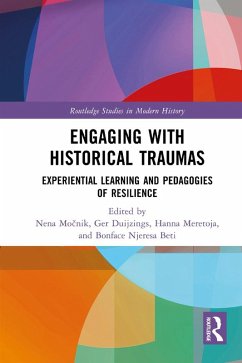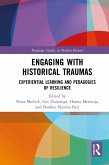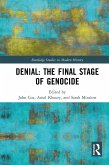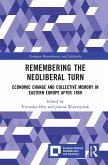All chapters revolve around this central theme, testing and trying various paradigms and experimenting with different practices, in a wide range of geographical and historical arenas. They demonstrate the innovative potentials of connecting know-how from different disciplines and combining experiences from various practitioners in this field of shaping historical memory, including non-formal and formal sectors of education, non-governmental workers, professionals from memorial sites and museums, local and global activists, artists, and engaged individuals. In so doing, they address the topic of collective historical traumas in ways that go beyond conventional classroom methods.
Interdisciplinary in approach, the book provides a combination of theoretical reflections and concrete pedagogical suggestions that will appeal to educators working across history, sociology, political science, peace education and civil awareness education, as well as memory activists and remembrance practitioners.
Dieser Download kann aus rechtlichen Gründen nur mit Rechnungsadresse in A, B, BG, CY, CZ, D, DK, EW, E, FIN, F, GR, HR, H, IRL, I, LT, L, LR, M, NL, PL, P, R, S, SLO, SK ausgeliefert werden.









